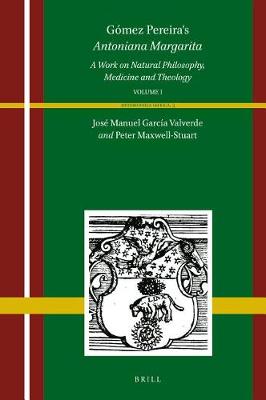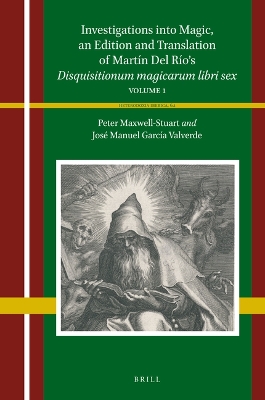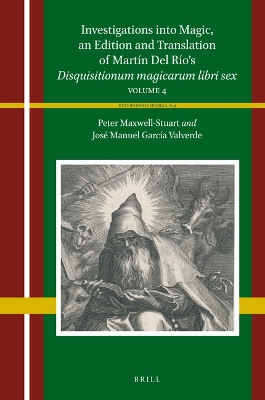Heterodoxia Iberica
1 primary work • 3 total works
Book 3
Gomez Pereira's Antoniana Margarita (2 Vols)
by Jose Manuel Garcia-Valverde and P. G. Maxwell-Stuart
Published 7 May 2019
Nearly a century before Descartes, Gomez Pereira published the Antoniana Margarita with the purpose of demonstrating the thesis of animal automatism, among many other things. The author included in his book several proofs of animal insensitivity and an original model aimed at explaining animal behaviour in the grounds of a purely mechanical system. In this sense, Pereira's work represents a critical appraisal of the traditional scholastic theory of the animal mind, as well as one of the first efforts to develop this question in the field of empirical observation and physiological knowledge. It is precisely for this reason that Gomez Pereira must be recognized as one of the most valuable thinkers of the Spanish Renaissance. The editors, Garcia Valverde and Maxwell-Stuart, offer the first critical edition of the Latin text, a careful translation and an extensive study that contextualizes its content in the philosophy of the sixteenth century.
Book 6.1
Martín Del Río (1551-1608) was a remarkably learned Jesuit scholar. His prolific output includes six volumes of Investigations into Magic which sought to be the last word on magic, witchcraft, and allied subjects such as divination and superstition, and a detailed manual of advice for judges and confessors engaged in combatting what was seen at the time as a dangerous threat to the spiritual life of humanity in this world and the next. First published in 1599-1600, Investigations was heralded as a major contribution to the armoury of the Counter-Reformation, and went through several editions, the last appearing in 1747.
Book 6.4
The sixteenth century saw the world as being mortally threatened by Satan who was encouraged by the widespread popularity of magic and other occult practices. Church and society struck back to defend people from this tidal wave of wickedness. Del Río’s panoramic and detailed treatise provided a powerful weapon in that battle. Far from dry scholarship, however, ‘Investigations’ is an engaging, fascinating, earnest conversation between Del Río and his readers and a major contribution to understanding key aspects of everyday sixteenth century behaviour and the problem of evil.


